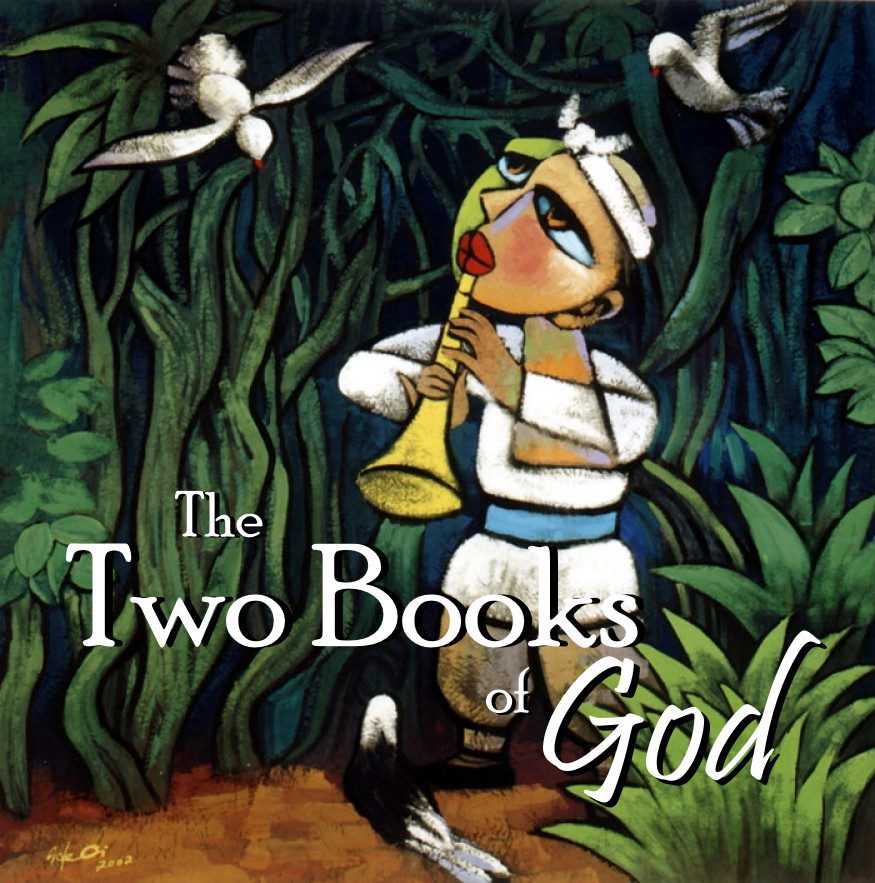A congregation of the United Church of Canada

Yr B ~ Creation 1 ~ Mark 9:30-37
Today is the beginning of the liturgical season of Creation. We’ve been marking this season for around a decade now, but it’s still pretty new. Except it isn’t. We’ll talk more about that later. You’d think the scriptures for the Season of Creation would be all about, well, you know, creation! They’re not. At least this year they’re not. This year they’re just regular lectionary readings from the gospel of Mark, and then some Matthew on Thanksgiving. So what makes it ‘creation-y’? We’ll talk more about that later too. 
Let’s start today with the reading from Mark’s gospel. Jesus and his entourage are walking down the road and apparently the disciples get into an argument about who is more important – ego stuff – which is kind of ironic because just before that Jesus was teaching them about how it was inevitable that the path he was on would lead to his death, but that wouldn’t be the end of this movement – The Way. Well, our duh-sciples were not able to comprehend his teaching, so instead they argued about who was better than the other. Oh the irony!
So Jesus sits them down, and tries again. Mark 9:35 Jesus says, “Whoever wants to be first must be last of all and servant of all.”
Classic Jesus! Turns our perception upside down. If you really want to be ‘first’ you have to be ‘last’ and become the servant of all. In other words, leggo-your-ego! Their blank faces show that they still don’t get it – so Jesus tries again.
He places a child in the centre of their circle. First of all, that helps us let go of this limited visual image that it was just Jesus and 12 men who were there. That kid didn’t come from nowhere. Clearly there were kids with them when they gathered – which means women too.
Anyway, Jesus puts the child in the centre and then embraces the child. Lovely. Jesus says, Mark 9:37 “Whoever welcomes one such child in my name welcomes me, and whoever welcomes me welcomes not me but the one who sent me.”
At first glance we may miss how important this is. Nowadays we say things like “the children are our future” and “it takes a village to raise a child” and “kids first”. That’s fantastic. But that’s not the way it was in ancient days. There were no helicopter or snow plow parents back then. Kids had no rights, no standing, no importance except for their usefulness. Sure, parents loved their kids, of course they did – but from a societal view kids were not valued generally.
But Jesus puts this child in the centre – not the side, but the centre – and embraces the child – and says if we aren’t loving the helpless ones, the ones with no voice or standing, the ones society devalues, then we are not loving Jesus, or by extension God.
Ok, that’s not a shocking teaching for us because our society does much, much better now at honouring, and protecting, and caring for children. So let’s use this teaching as metaphor. Let’s talk about the environment – it is the Season of Creation, after all.
“But Larry, this scripture has nothing to do with the environment at all! It’s basically about Jesus schooling his disciples about being too self-important.”
Look deeper! Jesus places a child in the centre of the circle and challenges his followers to see the child as beloved – holy – valuable beyond measure even though society devalued them.
What if we put nature – the earth – in the centre of the circle?
What if we were challenged to treat the environment as beloved, holy, and valuable – and not just something for us to consume or monetize?
Jesus challenges us to welcome the ‘child’ – to care for and respect the powerless, the voiceless – the forgotten, discounted, ignored, undervalued. Jesus puts creation, the environment, in the centre of the circle, embraces it, and challenges us to do likewise, in love.
“But Larry, we do this all the time. Just like the kids, we value the environment!”
Do we though? Our words say we value the environment – our actions (collectively) say otherwise. In the end, when push comes to shove, our convenience tends to win out over environmental or climate concerns. Look, I like to be cool in the summer and warm in the winter, and I need my car to get me from my new house out in the country to the church here, and I like to not spend all my money on those things. But the reality is all those things have a huge environmental impact. This is not news. It’s always a dance. We need to live and move – but how to do it more mindfully, welcoming the earth like a child Jesus would centre and embrace.
Jesus didn’t put the kid in the centre and say we should put them up on pedestals and venerate them and be unrealistic.
But he did say we must love them. Honour them. Respect them. Hear them.
Not use, or abuse, or injure them.
Be in loving relationships with them.
“Oh Larry, you sound like one of those tree-hugging, granola munching, new age environmentalists.”
Actually, no. I sound like Jesus.
These are not new ideas. We may be reawakening to them in greater ways these days – yes please – but there’s nothing new here. Creation spirituality is ancient. No, Jesus didn’t directly say much about the environment, but his Way of love, and care, and respect for everyone and everything – that everyone and everything is sacred and deserving of care, and love, and respect, and honouring – especially if they have no voice or power to wield for themselves (like kids, like the environment) – well, Jesus had LOTS to say about that.
And over time, as generations encountered the Jesus story and the Jesus Way, people began to articulate ‘creation care’ and ‘creation honouring’ in their theology. In fact, from the earliest centuries of Christianity there was a concept called ‘the two books of God’.
Can you guess what the two books of God are? The book of scripture, and the book of nature!
Think about that.
What if we revered the natural world as much as we’ve revered the bible?
What if we treated the natural world as a fountain of sacredness like we do Holy Scripture?
There are explicit references to the ‘Book of Nature’ in the writings of the ancient ‘fathers of the church’. It’s not an actual book, of course. It’s not a long, lost scroll. But it was a powerful, and operative concept that helped shaped Christianity from the very beginning. Later, as we became industrialized and disconnected from the earth as an integral part of our daily living, we lost touch with the ‘Book of Nature’. That’s why Creation Spirituality feels new – but it really isn’t. It’s just new to us.
While not many of us delve into the ancient writings of the early church we have surely all heard of Saint Francis. The current Pope even borrowed his name! Francis is famous for the way he held sacred the ‘Two Books of God’. There are all sorts of beautiful stories of him interacting with animals and nature. It’s said he would preach to the birds (as opposed to my preaching being for the birds!), and that he once persuaded a wolf to stop attacking a village.
One of his most famous pieces of writing is a song called “The Canticle of the Sun.” In it he names various elements of creation as his brothers and sisters – kindred in Christ – beloved, holy, valuable, honoured – plants, animals, elements, nature – like family. Like Jesus putting the little child in the centre of the circle, Francis puts creation in the centre of his spirituality, and loves, loves, loves. The Canticle has wonderful imagery, and sometimes gets referred to by the first images in it, ‘Brother Sun, Sister Moon’. I intended to title this sermon “Sibling Sun – Kindred Moon” in honour of Francis and to update the relational imagery into being even more inclusive – but then I thought calling it The Two Books of God was better.
Anyway, I’d like to read you his entire song. It’s been translated into English, obviously, so it may have lost some of it’s inherent flow – but the images are so wonderful that it still reads beautifully. And remember, it was written in or around the year 1224, so his male-based God-language is reflective of his time, and yet note the wonderful balance of female-based imagery as well.
Canticle of the Sun
Most High, all-powerful, good Lord, yours are the praises, the glory, the honour, and all blessings.
To you alone, Most High, do they belong, and no man is worthy to mention your name.
Praised be you, my Lord, with all your creatures; especially Brother Sun, who is the day, and through whom you give us light.
And he is beautiful and radiant with great splendour, and bears a likeness to you, Most High One.
Praised be you, my Lord, through Sister Moon and the stars; in heaven you formed them clear and precious and beautiful.
Praised be you, my Lord, through Brother Wind, and through the air, cloudy and serene, and every kind of weather through which you give sustenance to your creatures.
Praised be you, my Lord, through Sister Water, which is very useful and humble and precious and chaste.
Praised be you, my Lord, through Brother Fire, through whom you light the night; and he is beautiful and playful and robust and strong.
Praised be you, my Lord, through Sister Mother Earth, who sustains us and governs us and who produces varied fruits with colored flowers and herbs.
Praised be you, my Lord, through those who give pardon for your love, and bear infirmity and tribulation.
Blessed are those who endure in peace for by you, Most High, they shall be crowned.
Praised be you, my Lord, through our Sister Bodily Death, from whom no living man can escape.
Woe to those who die in mortal sin. Blessed are those whom death will find in your most holy will, for the second death shall do them no harm.
Praise and bless my Lord, and give him thanks, and serve him with great humility.
Amen.
Brother Sun. Sister Moon. Brother Wind. Sister Water. Brother Fire. Sister Mother Earth.
All of nature, elements, animals, all our siblings, kindred in Christ – beloved, holy, valuable, honoured – like family.
“Ok, Larry. That’s nice enough. But so what?”
Well, it’s harder to participate in clear cutting a forest, or strip mining, or polluting when you view it as hurting your siblings, your family.
How would it be if you treated everything and everyone like kin?
How might you live differently if you saw everything and everyone as sacred – as that little child that Jesus put in the centre, and embraced?
What might your ‘ode to creation’ be if you paused and drank in the beauty of the world around you, and remembered that it has no voice, and no power, and needs our care and protection and love?
What would it be like to value the Book of Nature as supremely as we value our Book of Scripture?
I’m not offering any answers to those questions today.
I’m simply inviting you into noticing, into wondering, into acknowledging our interconnected kinship with our sibling sun and kindred moon – with everything and everyone.
And as you read and reflect on the sacredness of the two books of God, I invite you to respond in love – like Francis – like Jesus.
Amen.



